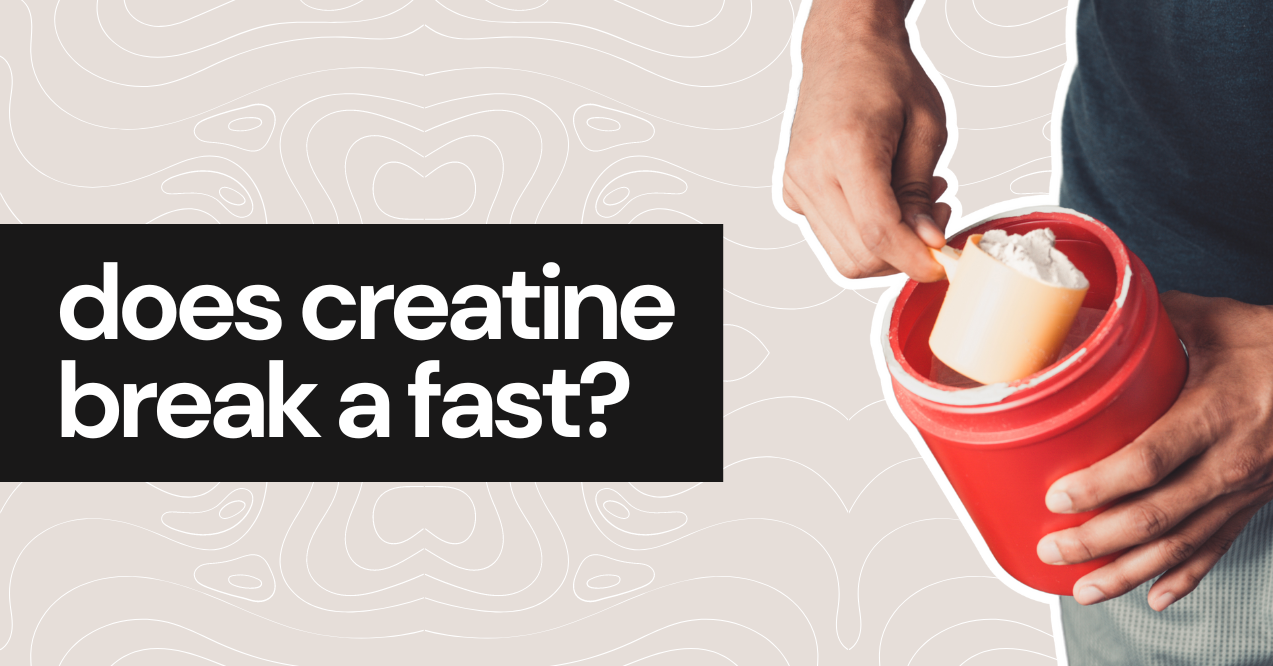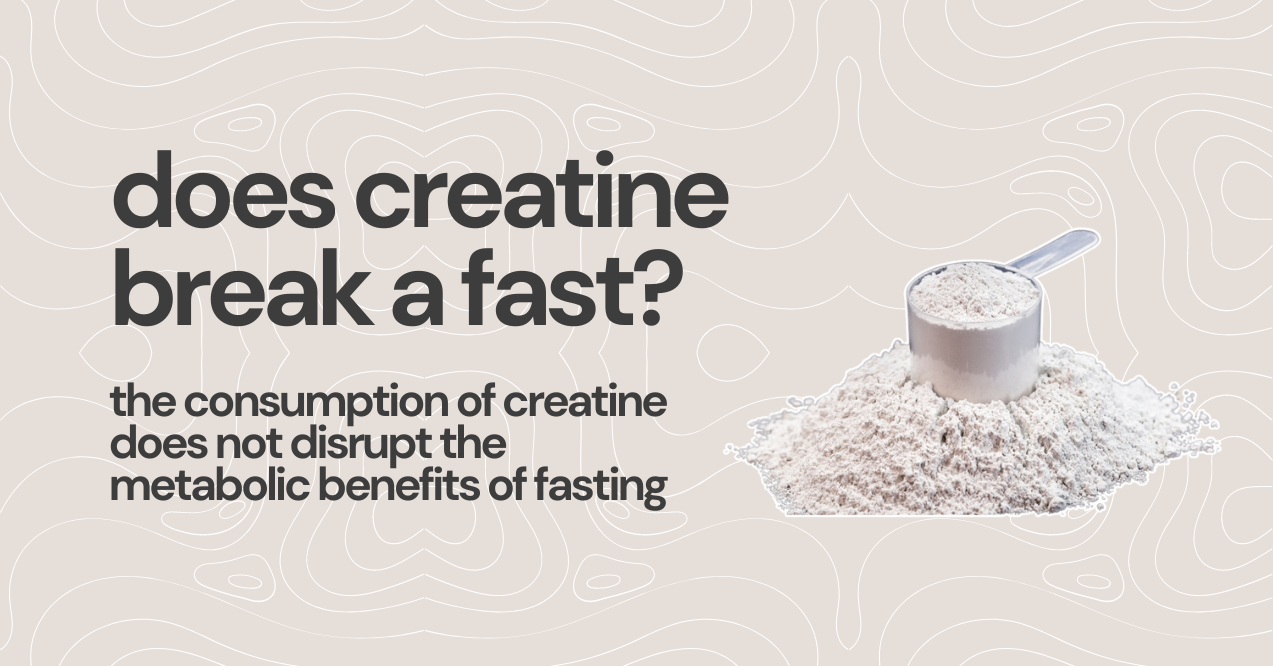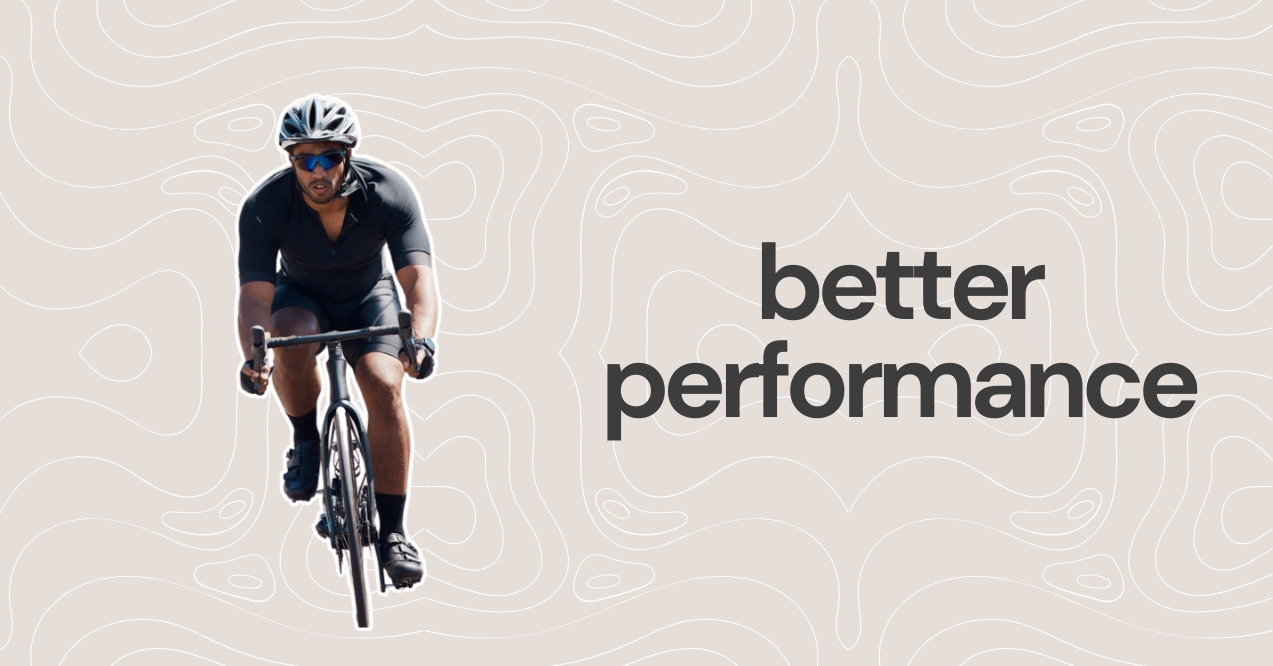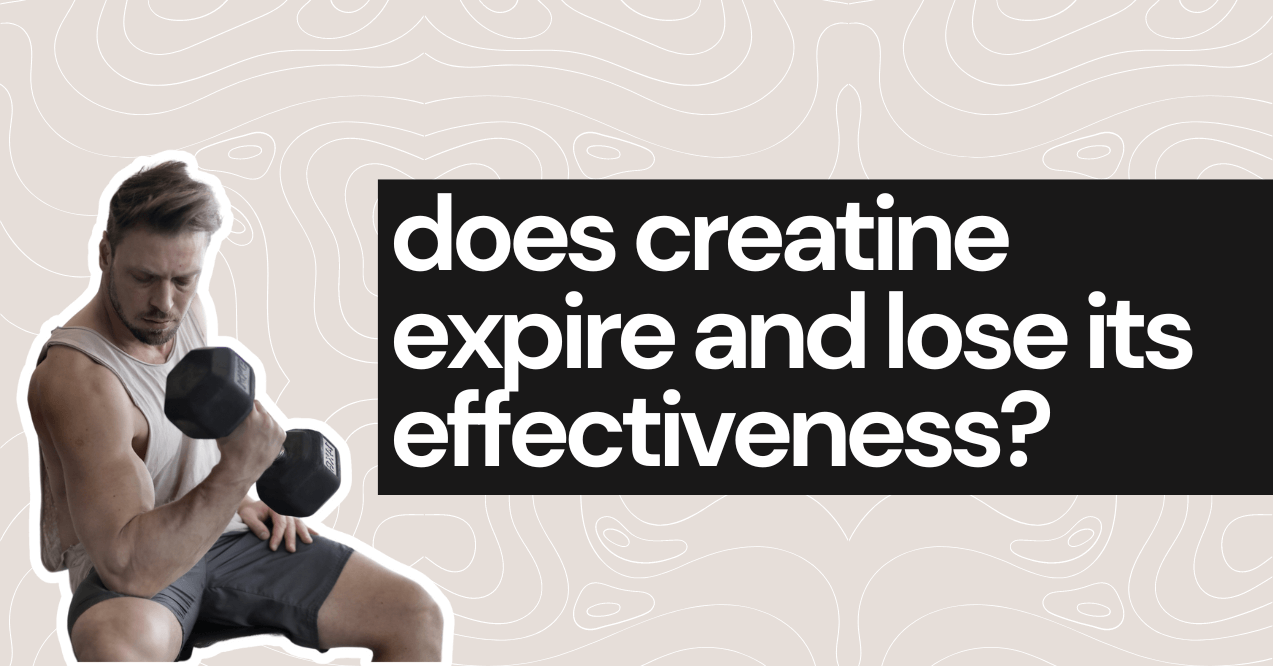health
by trumeta | March 29, 2024
Does Creatine Break a Fast?

Does creatine break a fast? This intriguing question lies at the heart of optimizing fitness routines, where the delicate balance of nutritional strategies and supplement timing can significantly impact overall health and performance. Fasting, a practice embraced for both its health benefits and spiritual significance, pairs intriguingly with creatine, a supplement famed for its ability to enhance muscle strength, power, and recovery in athletes and fitness enthusiasts alike.
In addition to concerns about fasting compatibility, many individuals also ponder whether creatine supplementation has side effects such as bloating. In addressing the query, “does creatine make you bloated,” we can better understand the full scope of creatine’s impact on the body, particularly during fasting periods.
Therefore, in this blog post, we will delve deep into the realms of creatine and fasting, uncovering the nuances of how these two elements interact and influence each other. Moreover, we will provide a comprehensive guide that not only addresses the burning question of whether creatine breaks a fast but also explores the optimal times for creatine consumption to maximize its benefits without compromising the fasting state.
What Is Creatine and Why You Might Consider It?
Creatine[1] is a naturally occurring compound found in small amounts in certain foods and synthesized in the human body, primarily in the liver and kidneys. It is stored in muscles where it is used for energy production, particularly during high-intensity, short-duration activities like sprinting and weightlifting. This makes creatine a staple supplement among athletes, bodybuilders, and fitness enthusiasts aiming to enhance their strength, endurance, and muscle mass.
Additionally, when taking creatine, the question often arises: does creatine make you bloated? While some users report an increase in water retention within the muscles during the initial phase of supplementation, this is not the norm for everyone and typically subsides as the body adjusts. The perceived bloating is actually a sign of creatine’s effective storage in the muscles[2], potentially leading to improved workout performance and recovery.
People consider adding creatine to their regimen not only for its performance-enhancing benefits but also for its potential cognitive benefits and support in muscle recovery. It is one of the most researched and supported supplements in the sports nutrition realm, known for its safety and efficacy. Whether you’re an elite athlete or a fitness novice, creatine offers a scientifically backed boost to help achieve personal bests and support overall health and wellness.
Does Creatine Really Break a Fast?

The interplay between creatine supplementation and fasting raises an intriguing question: does taking creatine break a fast? To unravel this, it is essential to understand what it means to be in a fasted state and how creatine operates within the body.
Fasting[3], in its essence, is the abstention from caloric intake for a specified period. It triggers a metabolic state where the body, in the absence of incoming food energy, turns to stored fats and carbohydrates for fuel, leading to various health benefits such as improved hormone sensitivity to circulating glucose, enhanced fat burning, and potential longevity gains. The core of fasting’s metabolic shift lies in lowering circulating hormone levels and increasing fat oxidation.
Creatine, on the other hand, is a naturally occurring compound in the body that plays a critical role in energy production, particularly for short bursts of high-intensity activities. It’s stored in the muscles and used to produce ATP[4] (adenosine triphosphate), the primary energy carrier in cells. Creatine supplementation is popular for enhancing physical performance, increasing strength, and supporting muscle recovery. Importantly, creatine itself contains no calories and does not directly influence glucose or hormone levels in the bloodstream.
Given this background, the consumption of creatine DOES NOT “break” a fast in the traditional sense. Since fasting’s metabolic benefits are primarily triggered by the absence of caloric intake and not by the absence of all ingestible substances[5], taking creatine while fasting does not halt the body’s use of stored energy reserves[6] nor does it affect the fasting-induced metabolic pathways like increased fat oxidation or lowered hormone levels. This scientific insight allows individuals to integrate creatine into their fasting regimen without negating the fasting state’s physiological benefits.
Moreover, the importance of choosing high-quality creatine also cannot be overlooked for those looking to enhance their physical performance, boost recovery times, and support muscle growth efficiently and safely. High-quality creatine ensures optimal absorption and effectiveness, minimizing the potential for undesirable side effects such as digestive discomfort or ineffective muscle saturation.
One such product to consider is trumeta creatine. Meticulously crafted, it offers users a micronized form of creatine monohydrate, specifically designed for maximum solubility and rapid absorption by the muscles. Through a micronization process, Trumeta Creatine breaks down creatine particles into smaller sizes, increasing their surface area and improving their ability to dissolve in liquid. Consequently, the muscles can efficiently absorb the creatine, facilitating its utilization in cellular energy production and muscle regeneration processes.
Moreover, by prioritizing purity and potency, trumeta’s creatine powder provides users with a reliable and scientifically validated supplement that can deliver the desired benefits without compromising on safety or effectiveness.
To sum up, the consumption of creatine DOES NOT disrupt the metabolic benefits of fasting, as its ingestion does not interfere with the physiological mechanisms triggered by the absence of caloric intake. Integrating high-quality creatine into a fasting regimen can enhance physical performance, recovery, and muscle growth without compromising safety or effectiveness.
Benefits of Creatine While Fasting
Incorporating creatine into your fasting regimen can significantly enhance your fitness journey, offering numerous benefits that align with the goals of improved performance, muscle growth, and recovery. Understanding the benefits of creatine while fasting helps in crafting a strategy that complements the physiological advantages of fasting with the potent effects of creatine supplementation. Below, we delve into how creatine supplementation during fasting periods can be a game-changer for fitness enthusiasts looking to maximize their results.
Faster Recovery

One of the most pronounced benefits of creatine while fasting is its ability to speed up recovery times[7]. Fasting can stress the body, particularly after intense workout sessions when nutrient availability is low, and the body’s recovery processes are in high demand. Creatine plays a crucial role here by replenishing ATP stores more efficiently, which is vital for regeneration and building muscle tissues.
This accelerated recovery process means that you can return to your training sessions sooner and with less soreness, thereby enhancing your overall training frequency and intensity without compromising the fasting state. The synergy between fasting-induced autophagy, a process where the body cleans out damaged cells to regenerate newer, healthier cells, and creatine’s energy-replenishing properties, ensures a robust framework for recovery and growth.
Muscle Growth

Creatine while fasting also supports muscle growth by providing the muscles with the energy required for high-intensity workouts, even in a fasted state. During fasting, the body may start to utilize muscle protein as a fuel source, which can be counterproductive for muscle growth. However, creatine supplementation helps preserve muscle mass by saturating the muscles with a high-energy molecule (creatine phosphate) necessary for ATP production, reducing the body’s need to break down muscle protein for energy.
This process not only aids in maintaining muscle mass but also supports muscle hypertrophy as you continue to engage in resistance training. Additionally, creatine promotes water retention in muscle cells, which may further stimulate muscle growth through cell volumization and signaling pathways that promote muscle regeneration and growth.
Better Performance

Lastly, the use of creatine while fasting can lead to better performance during workouts. Creatine’s well-documented effect on improving strength and power output[8] is particularly beneficial when training in a fasted state. It allows athletes and fitness enthusiasts to maintain a high level of intensity in their workouts, despite not consuming calories for extended periods.
This enhanced performance capability means that individuals can continue to make significant progress in their training goals, leveraging the benefits of fasting, such as improved hormone sensitivity and increased growth hormone levels, while still pushing their limits in terms of strength and endurance. The ability to train harder and longer, even while fasting, can accelerate fat loss and muscle gain, making creatine an invaluable supplement for those looking to optimize their fitness outcomes.
Whether your goal is to build muscle, increase strength, or recover faster, integrating creatine into your fasting schedule can provide the edge you need to achieve your fitness objectives more effectively.
What is the Best Time to Take Creatine?
Identifying the optimal time to take creatine while maintaining a fasting state is crucial for maximizing the synergistic benefits of both practices. For individuals engaged in intermittent fasting or similar fasting protocols, timing creatine supplementation strategically around your workout and eating windows can enhance its effectiveness without interrupting the fasting benefits.
For those who exercise during their fasting period, consuming creatine immediately post-workout, coinciding with your eating window’s start, can be highly beneficial. This timing leverages the body’s natural increase in hormone sensitivity[9] post-exercise, which can help with the more efficient uptake of creatine into the muscles. Moreover, taking creatine at this time ensures that you do not break your fast prematurely, as it aligns with your scheduled eating period.
Alternatively, if your workout occurs closer to the end of your eating window, taking creatine just before your last meal can help maintain elevated creatine levels in your system during your fasting phase. This approach supports continued ATP synthesis and muscle recovery while you fast.
Incorporating these practical tips into your daily routine ensures that you maximize the benefits of creatine supplementation, such as enhanced muscle recovery, growth, and performance, all while adhering to your fasting schedule. Tailoring the timing of your creatine intake to complement your fasting and workout schedule is key to achieving the best possible outcomes from both practices.

Conclusion
So, does creatine break a fast? In wrapping up our exploration into the interplay between fasting and creatine supplementation, we’ve navigated through several key insights that illuminate how these practices can be harmoniously integrated into your fitness and wellness routine. Here’s a succinct overview of the main points discussed:
- Creatine supplementation does not break a fast due to its non-caloric nature and does not provoke a hormone response.
- Creatine enhances recovery times and supports muscle growth by providing energy for high-intensity workouts and aiding in the preservation of muscle mass during fasting periods.
- Supplementation with creatine during fasting can lead to improved workout performance even in a fasted state.
- The most effective times to take creatine are immediately post-workout during your eating window or just before your last meal to ensure continuous support for muscle recovery and growth without disrupting the fasting process.
By thoughtfully integrating creatine supplementation into your fasting regimen, you can maximize the physiological benefits of both, leading to enhanced fitness outcomes, better recovery, and optimized overall health.
FAQs
Yes, you can take creatine while fasting. Creatine does not contain calories or spike hormone levels, so it typically does not disrupt the fasting state. It can even be advantageous for preserving muscle mass and enhancing workout performance during fasting periods.
Taking 20g of creatine at once is not recommended. Most studies suggest a loading phase of around 20g per day split into smaller doses over several days, followed by a maintenance dose of 3-5g per day. Consuming excessive amounts at once may cause digestive discomfort or be wasteful.
Yes, you can take creatine on an empty stomach. Creatine absorption is not significantly affected by whether you have eaten or not. However, some people may experience mild stomach discomfort when taking creatine on an empty stomach, so it is best to experiment and see what works for you.
References
[1] Creatine. (2023, December 13). Mayo Clinic. https://www.mayoclinic.org/drugs-supplements-creatine/art-20347591#:~:text=Creatine%20is%20found%20mostly%20in,gram%20of%20creatine%20per%20day.
[2] Antonio J, Candow DG, Forbes SC, Gualano B, Jagim AR, Kreider RB, Rawson ES, Smith-Ryan AE, VanDusseldorp TA, Willoughby DS, Ziegenfuss TN. (2021, February 8). Common questions and misconceptions about creatine supplementation: what does the scientific evidence really show? PubMed Center (PMC). https://www.ncbi.nlm.nih.gov/pmc/articles/PMC7871530/
[3] BSc, K. G. (2023, October 31). What is intermittent fasting and how does it work? Healthline. https://www.healthline.com/nutrition/10-health-benefits-of-intermittent-fasting
[4] Cooper R, Naclerio F, Allgrove J, Jimenez A. (2012, July 20). Creatine supplementation with specific view to exercise/sports performance: an update. PubMed Center (PMC). https://www.ncbi.nlm.nih.gov/pmc/articles/PMC3407788/
[5] Wang Y, Wu R. (2022, January 22). The Effect of Fasting on Human Metabolism and Psychological Health. Dis Markers. PubMed Center (PMC). https://www.ncbi.nlm.nih.gov/pmc/articles/PMC8754590/
[6] Nordqvist, J. (2023, June 26). Should I use creatine supplements? https://www.medicalnewstoday.com/articles/263269
[7] Professional, C. C. M. (n.d.-a). Creatine. Cleveland Clinic. https://my.clevelandclinic.org/health/treatments/17674-creatine
[8] Kreider, R. B., Kalman, D., António, J., Ziegenfuss, T. N., Wildman, R., Collins, R., Candow, D. G., Kleiner, S. M., Almada, A. L., & Lopez, H. L. (2017). International Society of Sports Nutrition position stand: safety and efficacy of creatine supplementation in exercise, sport, and medicine. PubMed Center (PMC). https://pubmed.ncbi.nlm.nih.gov/28615996/
[9] Ribeiro, F., Longobardi, I., Perim, P., Duarte, B., Ferreira, P., Gualano, B., Roschel, H., & Saunders, B. (2021). Timing of Creatine Supplementation around Exercise: A Real Concern? PubMed Center (PMC). https://pubmed.ncbi.nlm.nih.gov/34445003/
Advertisement. This site offers health, wellness, fitness and nutritional information and is designed for educational purposes only. You should not rely on this information as a substitute for professional medical advice, diagnosis, or treatment. If you have any concerns or questions about your health, you should always consult with a physician or other health-care professional. Do not disregard, avoid or delay obtaining medical or health related advice from your health-care professional because of something you May have read on this site. The use of any information provided on this site is solely at your own risk.
Popular Posts
Recent Posts
Does Creatine Expire and Lose Its Effectiveness?
July 17, 2024
Should You Take Pre Workout Before Running?
July 11, 2024
What Are the Best Herbs for Muscle Recovery?
June 27, 2024
Can You Drink Protein Shakes Without Working Out?
June 20, 2024


